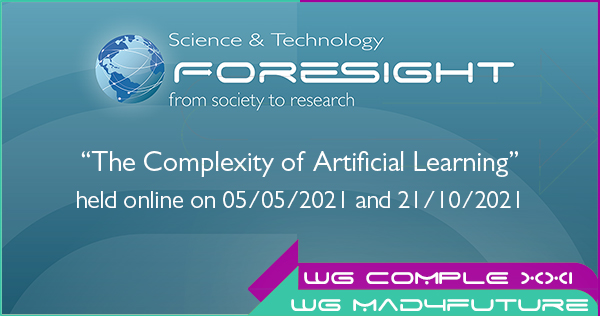Models, Algorithms, and Data for the Future
MISSION
At today, in our opinion. the main challenges come from the following aspects:
The complexity of systems is increasing at a fast pace, so new algorithms and huge computing power are also necessary to support intelligent machines. Whether orchestrated or self-organizing systems, unprecedented complexity is likely to be expected to support ‘creativity’, ‘feeling’, and ‘thinking out of the box’. Those ‘features’ should be accompanied by explainability and capability to provide causal relationships, exploiting context awareness and techniques as few-shot learning.
The field of data science should probably evolve for defining its quantitative and qualitative role coherently across all major domains and spheres of application. New generation of data scientists should be trained in using data to its best advantage towards current and future needs, in order to maximize the potential to drive discovery and develop a principled view of data science that properly combines inferential thinking and computational thinking seems necessary.
High-quality data are necessary to properly feed data-driven approaches, and quality should be preferred to quantity in order to reduce the impact of biased data, and thus provide a fair and representative description of a specific phenomenon, carefully considering its context. Thus, data-driven approaches must be accompanied by methodologies and algorithms that integrate and validate efficiently and efficaciously those data; or complemented by model-driven approaches that overcome the aforementioned limitations, as identified so far.
WG COORDINATORS:
Sara Colantonio, CNR-ISTI (sara.colantonio@isti.cnr.it)
F. Manlio Bacco, CNR-ISTI (manlio.bacco@isti.cnr.it)
Scientific committee (in alphabetical order):
Enrico Capobianco, Fabrizio Falchi, Paolo Ferragina, Michela Natilli, Salvatore Rinzivillo
WG MAD4FUTURE EVENTS

The Complexity of Artificial Learningheld online on 05/05/2021 and 21/10/2021 |


